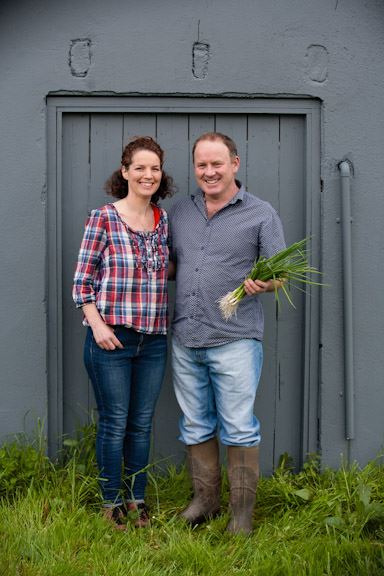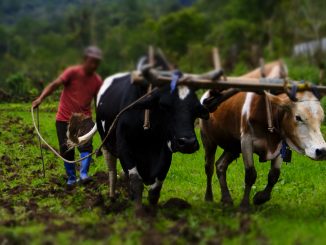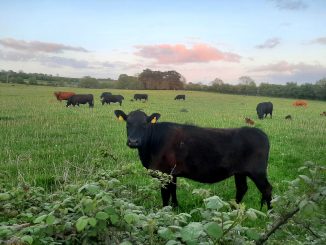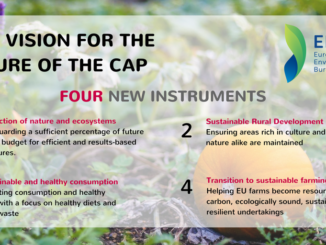
North west Europe is not known for its soaring temperatures. Yet, this summer, even Ireland has seen a prolonged drought, with almost no rain for weeks, a similar forecast for the weeks ahead, and temperatures reaching 30 degrees in this more typically temperate place. How are horticulturalists on the yellow-singed Emerald isle coping?
Padraig Fahy and his partner Úna Ní Bhroin are organic horticulturalists with 45 acres, between their own and rented land in Galway in the west of Ireland. We chatted about the weather and its impact on growers.
Oliver Moore: How are growing conditions?
Padraig Fahy: There’s been 30mm of rain since mid-May, we usually get three times that in May and June. A lot of the crops are suffering – we might lose half of our beetroot for example. We put in a borehole and dug a well, and that has really helped. We went down 320 feet. Water managing is now the equivalent of half a job on the farm, and there are extra costs too.
The April and May crops were delayed by the late spring, then summer came strong – we’re harvesting now, but the plantings going in the last 2-3 weeks have suffered. Aphids and root fly are more of a problem – the plants are weaker and the heat increases their breeding.
OM: Are there positives?
PF: On the plus side – we’ve lots of scallions; we got them off to shops, there were 6-7000 bunches as surplus, due to the late spring. Growers will have lots of gluts for e.g. with lettuce and scallions. Brassicas are suffering especially – they’re a big leafy plant, so the sun bakes down on it. Smaller thinner plants are doing ok. Tunnel crops are doing well with environmental controls, with moisture and air, we’ll have cherry tomatoes this week, cucumbers and courgettes are flying.
OM: How has the heat changed what you do?
PF: When planting out, you are preparing ground, irrigating and planting in 24 hours – if you expose soil the moisture will go away into the air. We’re also planting a bit deeper too, then irrigating immediately.
We can only irrigate on 40% of our land with our own system – the other fields are too far away, so we need a tanker for these fields and there are financial and physical costs. We had to get in a generator and buy fuel before the ESB connection came in.
A lot of the consequences will show up late July and August. Some crops might never recover – late parsnips really need moisture to germinate, only half will germinate – carrots too, yields will be back across the board. We’re using about 10,000 gallons to the acre for most crops. You’ve to be patient. The moisture needs to get time to get down to the roots, otherwise it’s a waste.
OM: How are the hours?
PF: We’re starting earlier- 6am – and then going out in the evenings again from 8 til 11. I’ve spoken to growers who are working Spanish hours – working until lunch then staying inside, then working in the evening time, then eating late.
UNB: We were in our wedding gear and ready to go to a neighbour’s wedding, when we realised we needed a different plug from the tool hire company for the generator. They let us pick it up out of hours which was very good of them. People are helping each other out, which is nice to see – it’s been good for community relations!
PF: Speaking to a lot of growers – we’ve never been in this position in Ireland before with the heat. We’re not really equipped to deal with it. Everyone is energetic with the sun, but the work is harder. Growers have lost full fields of carrots, of broccoli.
People need to buy Irish in this context –growers are under pressure. But also, this is climate change. We wanted to take the train to this wedding but needed to go back to sort of the irrigation! We’ve gone from two storms, to snow in March, and now to this.
a version of this article first appeared in the Irish Examiner farming supplement.






